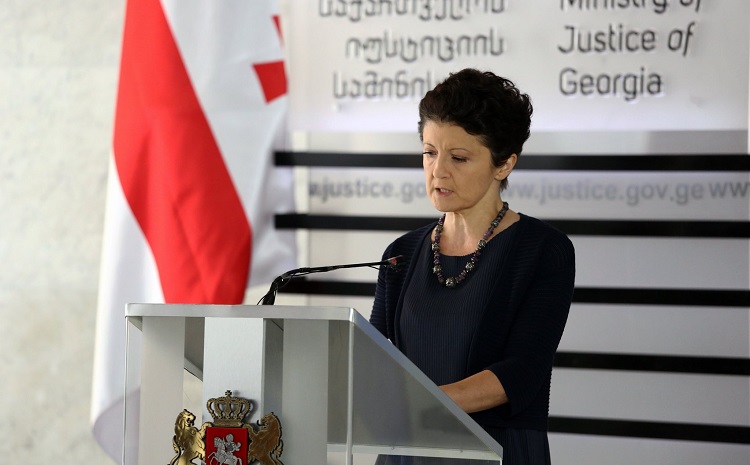Georgia shows historic ranking in World Bank survey on governance, anti-corruption activities

Georgia has shown historic improvement in three ranking of the World Bank Survey released on October 1. Photo: Nino Alavidze/Agenda.ge.
Georgia has ranked higher in the most recent survey by the World Bank - Worldwide Governance Indicators (WGI) in terms of anti-corruption activities, government effectiveness and regulatory quality.
Georgia received 76.4 per cent from the total 100 per cent scale for its efforts against corruption. In the ranking Georgia preceded 14 EU-member states,” Georgian Justice Minister Tea Tsulukiani said.
She stated that Georgia received a score of 74.04 percent for government effectiveness.
Georgia preceded six EU-member states – Hungary, Italy, Croatia, Greece, Bulgaria and Romania with the result,” Tsulukiani said.
Tsulukiani stated that in the ranking for regulatory quality, which estimates the reforms carried out by the government for the development of the private sector, Georgia received 83.17 per cent of 100 per cent.
 Georgian Justice Minister Tea Tsulukiani said that Georgia has shown better results than many of the EU and NATO member states. Photo: Justice Ministry press office.
Georgian Justice Minister Tea Tsulukiani said that Georgia has shown better results than many of the EU and NATO member states. Photo: Justice Ministry press office.
Results in the three ranking (of the total six) are historic,” Tsulukaini stated.
She said that Georgia has shown improvement for the rule of law ranking as well with 63.94 per cent of a total 100 per cent, ‘which is a better result than the five EU-member and eight NATO member states showed’.
The Worldwide Governance Indicators project reports aggregate and individual governance indicators for over 200 countries and territories over the period 1996–2018, for six dimensions of governance, the World Bank reports:
- Voice and accountability
- Political stability and absence of violence
- Government effectiveness
- Regulatory quality
- Rule of law
- Control of corruption
The survey combines the views of a large number of enterprise, citizen and expert survey respondents in industrial and developing countries. They are based on over 30 individual data sources produced by a variety of survey institutes, think tanks, non-governmental organisations, international organisations, and private sector firms.
 Tweet
Tweet  Share
Share